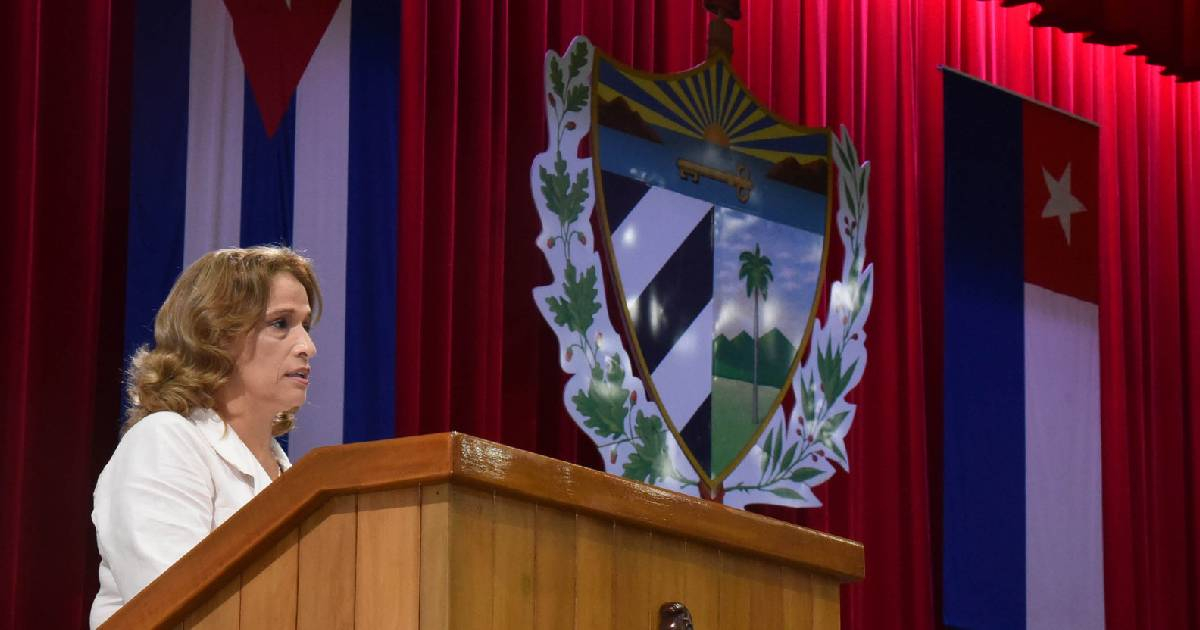The Cuban government has confirmed ongoing shortages in the distribution of products in the rationed food basket sold to the population. For years, these products have either not been complete or have suffered from frequent delays.
"2023 ended with shortages in beans, sugar, oil, coffee, chicken, meat products, eggs, and domestic fuels, which continued into the first quarter of 2024," stated a report from the official website Cubadebate, which highlighted the Ministry of Domestic Trade's accountability to the National Assembly of People's Power (ANPP).
A report presented to Cuban deputies by Minister Betsy Díaz Velázquez acknowledged that there is a breakdown in deliveries to the retail network due to financial difficulties that prevent achieving the necessary coverage and timely receipt of the products. This is evident on Cuban tables due to the scarcity of products that the government promises but fails to deliver monthly.
This shortage has increased the regime's control over various products such as hygiene items and cigarettes, as well as "selected products from retail chains and other items by local authorities' decision," they noted.
Another issue mentioned by the minister regarding the shortages was theft. "The shortages are centered around rice, beans, sugar, coffee, cigarettes, pasta, and powdered milk," she said. She pointed out that Pinar del Río, Havana, Las Tunas, Holguín, and Guantánamo are the provinces with the most thefts in warehouses.
When handing over the MINCIN's accountability report to Esteban Lazo Hernández, president of the ANPP, which was debated among deputies during this ordinary session, Minister Díaz Velázquez admitted that her ministry had established "certain commitments that today we can say are not all fulfilled, but we have the rest of the year to do so."
Efforts are being made to "improve domestic trade in Cuba," acknowledging the "persistent discontent" and the "limitations of physical fuel," but applauding "the effort being made to get essential products to the people." This was the projection of the accountability presented to the regime's deputies.
"Ships that are here but cannot unload, deliveries that are not completed, transfers—in short, workers continue to make an effort by distributing without electricity, when a vehicle appears, using alternative means," stammered the minister during the meeting, an excerpt of which was broadcast by the National Television News.
At the Palace of Conventions in Havana, the Cuban Prime Minister Manuel Marrero Cruz stated during the work of the Services Attention Commission, prior to the third ordinary session of the tenth legislature, that the rationed basket, "despite its shortcomings, is an achievement that will be maintained." He explained that "almost all products in the family basket have to be imported, and this is the priority when allocating foreign currency for investment."
However, complaints about delays and shortages in the rationed basket continue to be read on social media. It is worth remembering that at the beginning of July, residents of Holguín received the overdue rice that the government owed them from June. A similar situation occurred throughout the eastern part of the island.
Since 2022, dependence on imports has increased to ensure the products, due to the decline in national production of rice, beans, eggs, milk, and other foods.
Understanding Cuba's Food Shortages
To provide more clarity on the ongoing food shortages in Cuba, here are some frequently asked questions and their answers regarding this critical issue.
What are the main reasons for the food shortages in Cuba?
The primary reasons for the food shortages in Cuba include financial difficulties that hinder the importation of necessary goods, increased control and rationing by the government, and theft in storage facilities.
Which provinces in Cuba are most affected by thefts in storage facilities?
The provinces most affected by thefts in storage facilities are Pinar del Río, Havana, Las Tunas, Holguín, and Guantánamo.
How is the Cuban government addressing these food shortages?
The Cuban government is attempting to improve domestic trade, despite acknowledging financial limitations and persistent discontent. They are also focusing on importing essential goods to address the shortages.
Why is there an increased dependence on imports in Cuba?
There is an increased dependence on imports due to the decline in national production of key food items like rice, beans, eggs, and milk.
